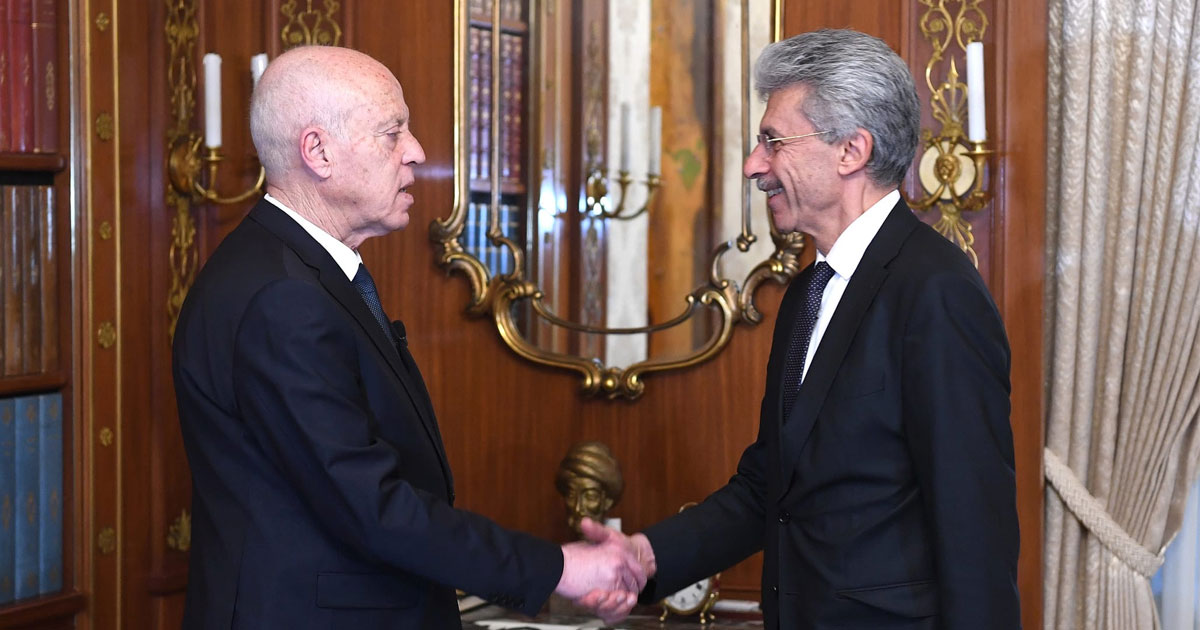In receiving the Minister of Economy and Planning, Samir Saïed, yesterday, Friday 2 December 2022, at the Carthage Palace, the President of the Republic gratified us, in a five minute videotransmitted at the end of this meeting, a speech in which he summarized all of his economy, which seems to us very rudimentary to be somewhat useful in helping to bring an almost static country out of the crisis in which it is sinking day after day.
Par Ridh Kefi
First, in his three-year reign, President Saïed has received very rarely “son” Minister of Economy and Planning, in any case much less than his colleagues of the Interior and of Justice, the two main pillars of his power: police and justice. We could then logically expect some major announcements, but we got our moneys worth. Because we only had the right to repetitions, long-revised observations that didn’t move anything in the country. Redundant statements that do not eat bread and commit only those who take them at face value.
As usual, the president resumed his campaign slogan “Echaab your id” (the people want) in various formulations where the word people returns as a leitmotiv, marking the presidential speech not as a call for mobilization but as a litany that has become boring: “Economic and social plans must be drawn up on the basis of the needs of the Tunisian people”; “They aim to satisfy the Tunisian people’s aspiration for a dignified life” it’s at “respond to the demands of the Tunisian people” or : “Money stolen from the people must go back to the people.”
An annoying background noise of flatness
Judging by the perplexed, ironic and sometimes even critical comments of Internet users on the Facebook page of the Presidency of the Republic, we can say that this kind of soporific talk is finding less and less attention among the majority of citizens, even among those who were, not so long ago, fervent supporters of the President of the Republic. And with good reason: if they are not followed by actions whose impact on everyday reality can be concretely measured, words become a boring background noise of flatness or even annoying.
In his speech yesterday, President Saïed gave us his usual clichés: “distribute the nation’s wealth more fairly”; “chasing the corrupt who have destroyed everything like locusts”; “recover part of the money stolen from the people”; “accelerate the examination of corruption cases that lie dormant in the drawers of justice”; “to ensure that money doesn’t just go to the rich”which are, as we have known for some time, the itchy hair of the President of the Republic, whose economic science seems reduced to a simplistic axiom: take money from the rich and give it to the poor, as if the objective were not to create new wealth to find something to be shared, but to impoverish the rich, whose wealth is necessarily doubtful if not badly earned…
The sharing of poverty
Beyond the inanity of such a conception that enriches no one but impoverishes everyone, the interest that the President of the Republic attributes to what he calls “criminal conciliation in economic-financial crimes, facts, acts and practices that have given rise to illicit or illicit advantages and produced pecuniary damage to the State, local communities, businesses, bodies and public bodies or other subjects, and this, at consecration of the principle of restorative criminal justice” (presidential decree n°2021-117 of 22 September 2021) would have made sense if this much-discussed process had kicked off and started to yield some results. However, not only is this text still slow to implement, but the members of the government do not seem to have the same interest as the President of the Republic. They pretend it doesn’t exist, they avoid talking about it, and there is no trace of it in government literature.
We explain: in a normal country (and Tunisia is not normal at all), leaving yesterday’s meeting, the Minister of Economy and Planning should have issued a press release to take stock of the progress made in this direction “criminal reconciliation” to which the President seems so close and which should solve all the country’s economic problems and provide it with the financial resources necessary to relaunch investments, growth and employment.
However, nothing happened. Mr. Saïed, like all his government colleagues, has his head elsewhere, namely the implementation of the structural reforms agreed with the International Monetary Fund (IMF) to obtain a new loan of 2.9 billion dollars, whose reforms meet strong resistance from entire sectors of the population: poor, rich, middle class… And for good reason: they will only have, in the immediate and short term, negative effects: rising inflation, rising prices, falling purchasing power, worsening unemployment and general impoverishment… So many socio-economic constraints that the President of the Republic does not like to hear about, to the point that he turns a deaf ear or gets in touch rather than talk about it.


